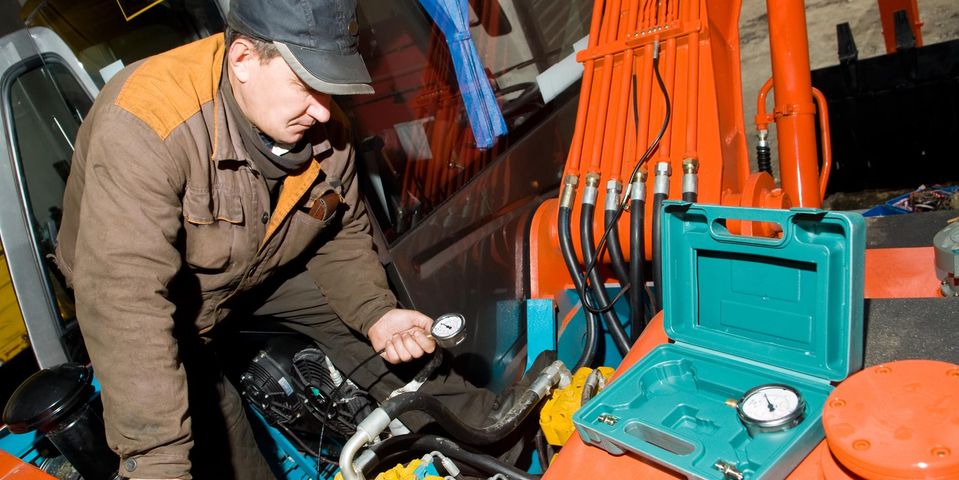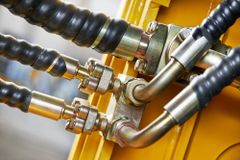What You Need to Know About Overheating Hydraulic Cylinders

In addition to leaks, excessive heat is one of the biggest threats to a hydraulic cylinder. To help you address this problem, here’s a beginner’s guide on what causes excess heat and what to you can do to fix it.
What Causes a Hydraulic Cylinder to Overheat?
Incorrect Component Sizes
Improperly sized components produce excess heat; for example, if you upgrade your flow pump without also upgrading your pipes, they may be too small to handle the pressure increase, which will result in overheating. Similarly, if your hydraulic tank is not big enough for your system, it won’t have enough space to radiate excess heat.
Improper Adjustments
People often make setting adjustments without considering how it might affect the hydraulic cylinder as a whole. One of the most common errors is increasing the pump compensator’s setting past that of the relief valve, which forces the pump to work overtime.
 Damaged Components
Damaged Components
Internal bypasses increase when a hydraulic cylinder relies on broken or worn down components. This can cause pressure to drop, adding energy to your system in the form of heat.
How Does Overheating Affect Your Hydraulic Cylinder?
A hydraulic cylinder running too hot can negatively affect your system’s parts and performance. Some consequences include:
- Shortened Oil Life: Excess heat increases oil temperature and speeds up its rate of oxidation, or degradation.
- Damaged Seals & Hoses: The materials used to make hydraulic seals and hoses break down much faster at high temperatures, which can result in leaks and increased replacement costs.
- Insufficient Oil Viscosity: Excess heat lowers the viscosity of hydraulic oil, which hinders its ability to adequately lubricate your system.
How Can You Fix an Overheating Hydraulic Cylinder?
For an overheating hydraulic cylinder to cool down, its heat load must be decreased or its rate of heat dissipation must be increased. To reduce heat load, you can replace damaged components or check setting adjustments. To speed up heat dissipation, you can place a fan by the reservoir or install a heat exchanger. If you’re unsure what’s causing the excess heat, have your system examined by a hydraulics expert.
If you suspect your hydraulic cylinder is overheating, contact D & M Hydraulics Sales & Service in Waipahu, HI. For more than 30 years, they’ve served as a one-stop shop for all hydraulic needs, from gaskets and valves to power tools and fittings. Plus, they offer 24-hour service. Check out their website for a complete list of services, or call (808) 671-2420 to inquire about making custom hydraulic hoses.
About the Business
Have a question? Ask the experts!
Send your question

